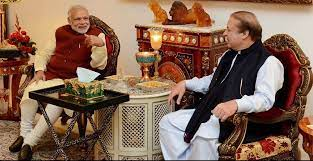The International Monetary Fund (IMF) has reached a staff-level pact with Pakistan on a $3 billion stand-by arrangement, the lender said, a decision long awaited by Pakistan, which is teetering on the brink of default. The deal — subject to approval by the IMF board in July — comes after an eight-month delay and offers some respite to Pakistan, which is battling an acute balance of payments crisis and falling foreign exchange reserves.
The $3bn funding, spread over nine months, is higher than expected for Pakistan. The country was awaiting the release of the remaining $2.5bn from a $6.5bn bailout package agreed in 2019, which expired on Friday (today).
Here are some key facts about the agreement. The power sector has been specifically mentioned by the IMF, which called for a “timely” rebasing of tariffs to ensure that costs are recovered. This means hiking prices for consumers despite already record-high inflation in what is an election year.
The State Bank of Pakistan (SBP) should withdraw import restrictions put in place to control external payments in the face of fast-depleting foreign exchange reserves, which had throttled economic growth. Reserves stand at $3.5bn — barely enough to cover a month’s worth of controlled imports.
Pakistan has been asked to commit fully to a market-determined exchange rate, remove controls and eliminate multiple exchange rate practices in different markets, even as the rupee has depreciated to record lows in recent weeks.
The SBP has also been asked to remain “proactive” to reduce inflation. The bank paused its rate hike process at a scheduled meeting this month. Days later, it implemented an off-cycle 100 basis point hike to take its policy rate to 22 per cent on the demand of the IMF.
Despite the larger-than-expected IMF bailout, the agreement stressed that Pakistan will have to continue to mobilise multilateral and bilateral financial support.
Saudi Arabia and the United Arab Emirates have pledged a combined $3bn that is expected to come in now that the IMF deal has materialised. Debt rollovers from China, the country’s largest creditor, will also be key.
Ensuring the materialisation and building of a spending framework for pledges secured earlier this year in an international donor conference will be key. Over $9bn in climate-related pledges were made to help Pakistan recover from devastating floods in 2022.
Pakistan needs $22bn to fund its external payment obligations, including international debt servicing, in the financial year 2024 — which starts on July 1 and ends on June 30, 2024.
Pak PM to attend SCO Virtual Summit at the invitation of Modi:
Prime Minister Shehbaz Sharif will participate in the 23rd Meeting of the Shanghai Cooperation Organisation’s (SCO) Council of Heads of State (CHS) at the invitation of Indian Prime Minister Narendra Modi, according to a press release issued by the Foreign Office (FO) on Friday.
The FO said the CHS moot, the highest forum of the SCO, will be held in videoconference format on July 4 (Tuesday).
“The invitation to the prime minister to attend the SCO-CHS was extended by the prime minister of India in his capacity as the current chair of the SCO,” the press release reads. It added that PM Shehbaz’s participation “illustrates the high importance that Pakistan attaches to the SCO, as an important forum for regional security and prosperity, and enhanced engagement with the region”.
 |
| File snap: But no good memories |







No comments:
Post a Comment